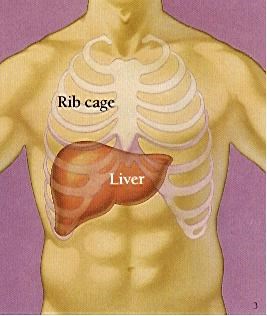ABRIDGED NEWS RELEASE
BAYER HEALTHCARE
************************** First agent ever demonstrates significant benefit in liver cancer Nexavar proven to extend overall survival by 44 per cent
TORONTO, June 4 - Results from a new global study have shown that Nexavar (sorafenib tablets) is proven to extend overall survival in patients with hepatocellular carcinoma (HCC), or primary liver cancer versus those taking placebo by 44 per cent.
These findings were released today at the 43rd annual meeting of the American Society of Clinical Oncology (ASCO) in Chicago, Illinois. The phase III international, multi centre Nexavar trial, called SHARP Sorafenib HCC Assessment Randomized Protocol, randomized and evaluated liver cancer patients who had no prior systemic therapy.
The primary objective of the study was to compare overall survival in patients administered Nexavar versus those administered placebo.
Median overall survival was 10.7 months in Nexavar-treated patients compared to 7.9 months in those taking placebo.
Canadian trial sites included Calgary, Edmonton, Montreal, Ottawa, Toronto and Winnipeg. "Currently there are no therapies that significantly improve the length of survival in the thousands of patients with advanced, unresectable hepatocellular carcinoma or primary liver cancer. These important findings demonstrate the compelling study results of Nexavar as the new standard of care for the first-line treatment of HCC," said Dr. Jennifer Knox, SHARP trial investigator, Clinical Oncologist, Toronto. The study data monitoring committee in agreement with Bayer, halted the SHARP trial in February 2007, based on a pre-planned interim analysis that proved an overall survival benefit for Nexavar.
In the SHARP trial, there were no significant differences in treatment-emergent serious adverse events between the Nexavar (51.5 per cent) and placebo-treated (54.3 percent) groups.
The incidence of Grade 3 and 4 adverse events occurring at a higher incidence (greater than or equal to two per cent) in subjects in the sorafenib group versus the placebo group were diarrhea (11 percent vs. two percent), skin reactions in the hands and feet (eight percent vs. one percent), fatigue (10 percent vs. 15 percent), bleeding (six percent vs. nine percent) and alopecia (hair loss).
About liver cancer
Hepatocellular carcinoma is the most common form of liver cancer and is responsible for about 90 per cent of the primary malignant liver tumors in adults.
It is the fifth most common cancer in the world and the third leading cause of cancer-related deaths globally. Mortality rates of liver cancer in Canada are on the rise, and for 2007, it is estimated that there will be approximately 1,350 newly diagnosed cases of liver cancer, an estimated half of which will be fatal.
Liver cancer is more prevalent in men than women, with 1,050 new diagnoses in men, compared to 300 in women.
About Nexavar
Nexavar targets both the tumor cell and tumor vasculature and is the only oral multi-kinase inhibitor that does not require patients to interrupt their treatment schedule. In preclinical studies, Nexavar has been shown to target members of two classes of kinases known to be involved in both cell proliferation (growth) and angiogenesis (growth of new blood vessels) - two important processes that enable cancer growth.
Nexavar works by slowing tumour growth and by cutting off the blood supply to the tumour (angiogenesis).
Nexavar acts on proteins called kinases which include RAF kinase, VEGFR-2, VEGFR-3, PDGFR-(beta), KIT, FLT-3 and RET. Nexavar is currently approved in nearly 50 countries, including Canada, the United States and in the European Union, for the treatment of patients with advanced kidney cancer.
In 2006, Therapeutic Products Directorate of Health Canada (TPD) granted a Notice of Compliance with Conditions (NOC/c) for Nexavar for treatment of patients with locally advanced/metastatic renal cell (clear cell) carcinoma who have failed prior cytokine therapy or considered unsuitable for such therapy.
This authorization reflects the promising nature of the clinical evidence which will require additional confirmatory data.
Products approved under Health Canada's NOC/c policy have demonstrated promising benefit, are of high quality and possess an acceptable safety profile based on a benefit/risk assessment for the approved use.
Nexavar is currently marketed in Canada for renal cell (clear cell) carcinoma, however, the product is not reimbursed by the government.
In addition, it is being evaluated by Bayer, international study groups, government agencies or individual investigators as a single agent or combination treatment in a wide range of cancers, including as adjuvant therapy for kidney cancer, liver cancer, metastatic melanoma, non-small cell lung cancer and breast cancer. "Although originally approved for use in the treatment of advanced kidney cancer, HCC is the second tumor type in which Nexavar has demonstrated a clinical benefit," said Dr. Shurjeel Choudhri, senior vice president, head of medical and scientific affairs, Bayer HealthCare Pharmaceuticals. "We will continue to conduct a thorough and ongoing clinical program that could bring the potent cancer-fighting properties of Nexavar to an even broader number of patients in the coming years."
Important safety considerations for Canadian patients taking Nexavar
Based on the currently approved product monograph for the treatment of patients with advanced kidney cancer, hypertension may occur early in the course of therapy and blood pressure should be monitored weekly during the first six weeks of therapy and treated as needed.
Incidence of bleeding regardless of causality was 15 per cent for Nexavar vs. eight percent for placebo and the incidence of treatment-emergent cardiac ischemia/infarction was 2.9 percent for Nexavar vs. 0.4 percent for placebo.
Most common treatment-emergent adverse events with Nexavar were diarrhea, rash/desquamation, fatigue, hand-foot skin reaction, alopecia, and nausea.
Grade 3/4 adverse events were 38 per cent for Nexavar vs. 28 percent for placebo.
Women of child-bearing potential should be advised to avoid becoming pregnant and women with infants should be advised against breast-feeding.
In cases of any severe or persistent side effects, temporary treatment interruption, dose modification or permanent discontinuation should be considered. For Canadian Nexavar prescribing information, visit www.bayerhealth.com or call 1-800-265-7382.
*************************
